From October 23 to November 14, the College of Human Ecology held its “2024 Academic Festival.” This event was a stage for students, faculty, and alumni to share their achievements across the fields within human ecology. Hosted across Building 222 of the College of Human Ecology to the SNU Power Plant, the festival offered diverse programs, including a convergence research symposium, symposia held by undergraduates, a fashion show, alumni leadership lectures, and graduate research poster exhibitions.
Spotlighting Undergraduate Research
During the festival, each of the College of Human Ecology’s four departments hosted a symposium to present the activities and outcomes of student research over the past months. The festival began with the Department of Fashion and Textiles hosting its fashion show on October 23. This year’s show, – themed “形 (Shape)” – was held at the SNU Power Plant. Fifteen students of the department showcased fifty-six pieces that used diverse silhouettes, innovative techniques, and bold accents, leaving a strong impression on the audience.
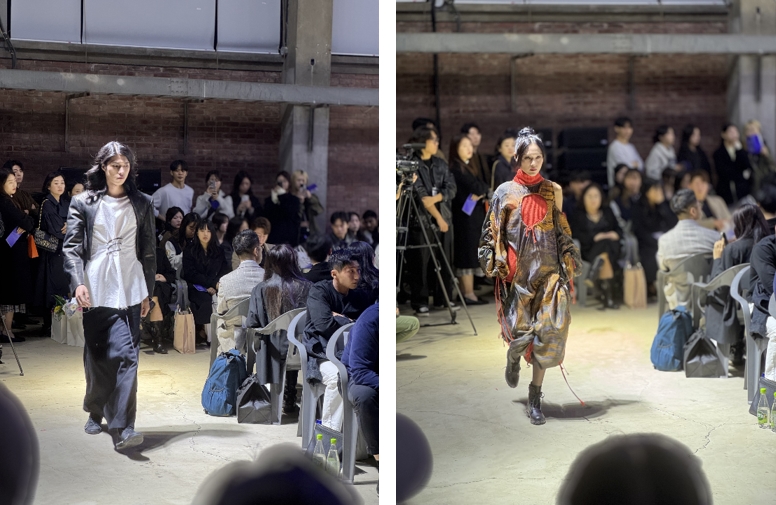
The fashion show being held at the Power Plant
On November 4, the Department of Child Development and Family Studies held its symposium where students presented their research called “Design and Practice of Early Childhood Diversity Education Using Picture Books: Focusing on Art-Based Research.” A team of eight undergraduates shared insights from a diversity education program they designed and trial-ran for young children in collaboration with daycare centers. Toddlers were to draw and create artwork for the program, and the results of the children’s project were exhibited at the venue and offered attendees a vivid look at the program’s impact. The presenters emphasized the importance of early education on diversity, highlighting how such programs can lay a strong foundation for inclusivity from a young age.
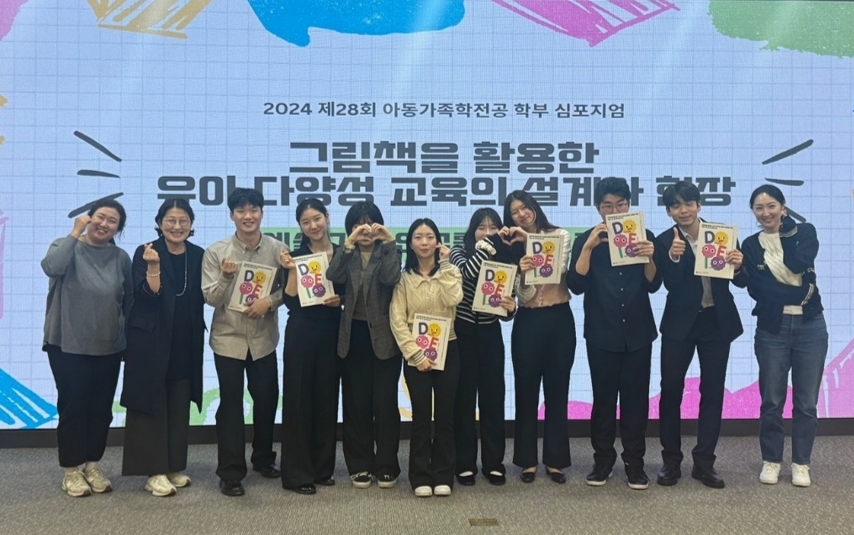
The symposium of the Department of Child Development and Family Studies
The Department of Food and Nutrition also took the stage to share findings from their research on zero-calorie drinks. The research surveyed students on campus to gauge knowledge about artificial sweeteners, which revealed a general lack of consumer awareness on the effects and risks of such ingredients. The presentation addressed the potential side effects associated with these sweeteners and concluded with policy recommendations aimed at both government bodies and corporations to improve consumer information.
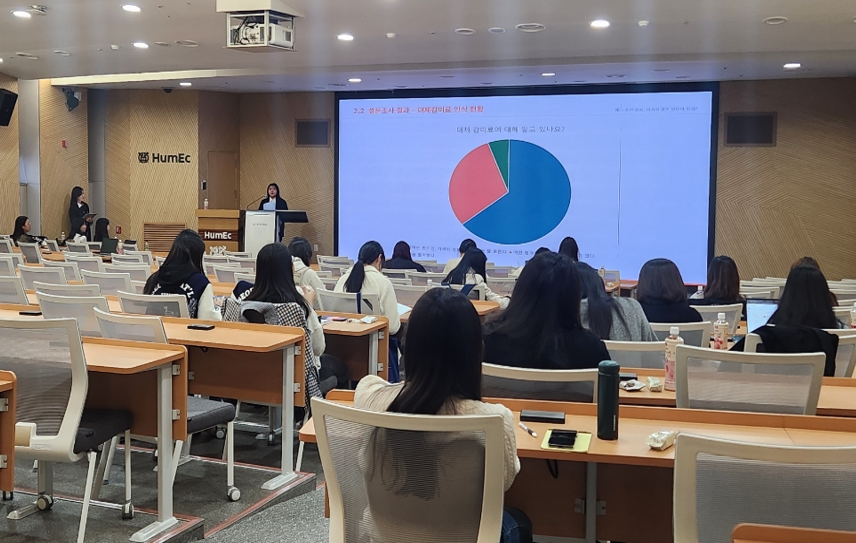
The presentation of the Department of Food and Nutrition, introducing the survey results
The Department of Consumer Science presented an analysis on Generation Z’s leisure consumption patterns amid the rise of 'funflation.' Using a blend of qualitative and quantitative research, they examined modern leisure lifestyles and consumer choices to better understand what motivates Gen Z to pursue leisure activities and how satisfied they are with these experiences. Despite rising prices, the findings suggest that consumers remain committed to spending on leisure activities, indicating that the trend of 'funflation' is likely here to stay.
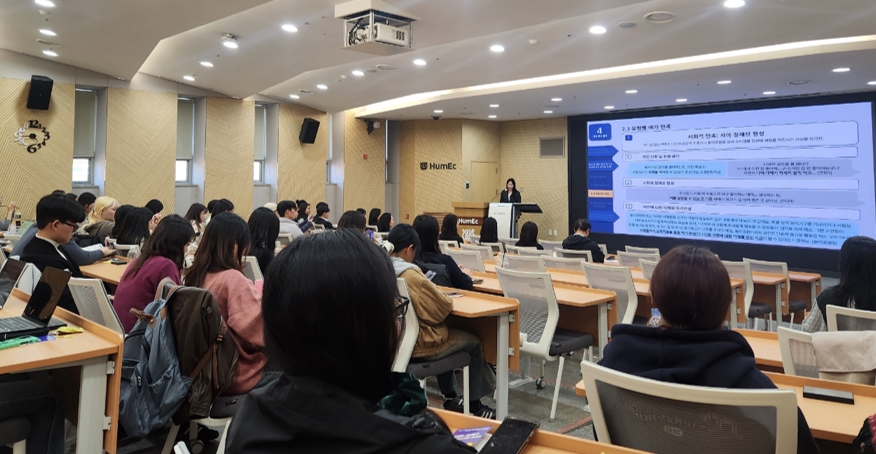
The Department of Consumer Science presenting their findings
Exploring the Future of the Senior Care Industry: The Convergence Research Symposium
Among the many highlights, special lectures on October 30 explored the future of the senior industry and the vital role of human ecology. Professors and industry professionals gathered to discuss issues related to the rapidly aging population. Speakers highlighted their ongoing efforts to enhance senior well-being, covering topics such as residential welfare, caregiving services, the food industry, and research on life-assisting AI technologies. The session underscored the urgent need for proactive strategies to prepare for an aging society, leaving attendees with expert insights into the roles human ecology can play.
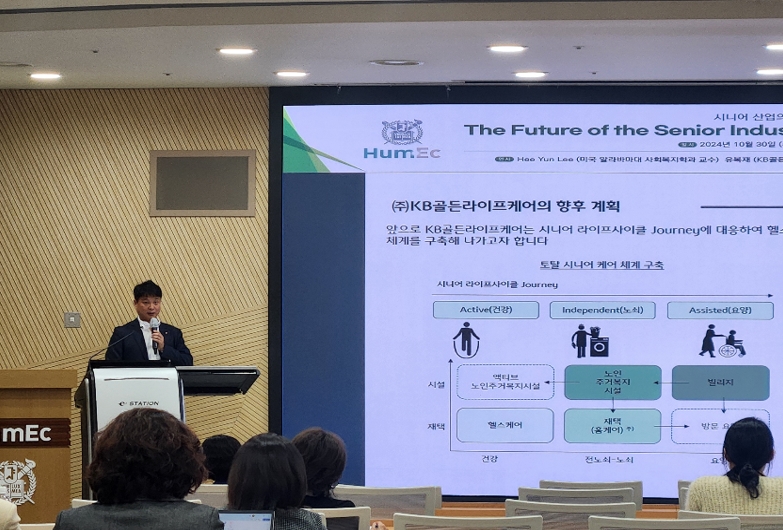
Lecture from KB Golden Lifecare on senior residential welfare
Engaging with Graduate Research and Alumni Insights
To wrap up the festival, alumni lectures took place on November 12 and 14, featuring notable alumni now in leadership roles. Woo Ji-sung, a 1989 graduate from the Department of Food and Nutrition and current Operations Director of the NGO With, shared his experiences in international volunteer work, highlighting the values it instilled. Nam Seon-sook, a 1988 graduate from the Department of Consumer and Child Studies and now Production Director at EBS, spoke on the theme “Communicare with Fun and Meaning!” and shared insights from her broadcasting career. The importance and potential of human ecology were also highlighted during the first week of November, as the College of Human Ecology’s lobby transformed into an exhibition space for graduate research posters.
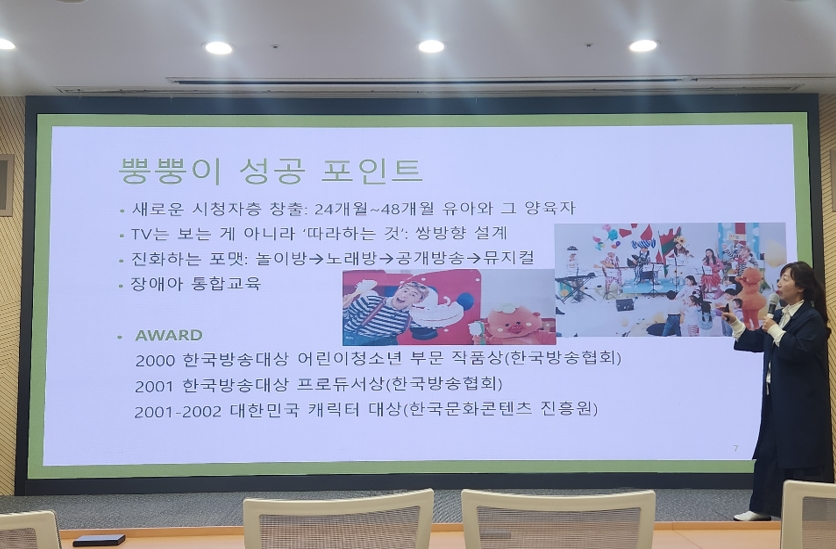
Production Director Nam Seon-sook sharing her insights
This academic festival brought together students, professors, and alumni to celebrate the spirit of inquiry and collaboration in human ecology. From innovative research to creative expression and insightful discussions, the event fostered learning and inspired new ideas to address pressing challenges that the College of Human Ecology will continue to tackle. As an annual tradition, the festival aims to attract even more diverse and innovative research in the coming years, with hopes of uncovering new insights that will advance the field of human ecology.
Written by Jeemin Suh, SNU English Editor, jiminasuh@snu.ac.kr

